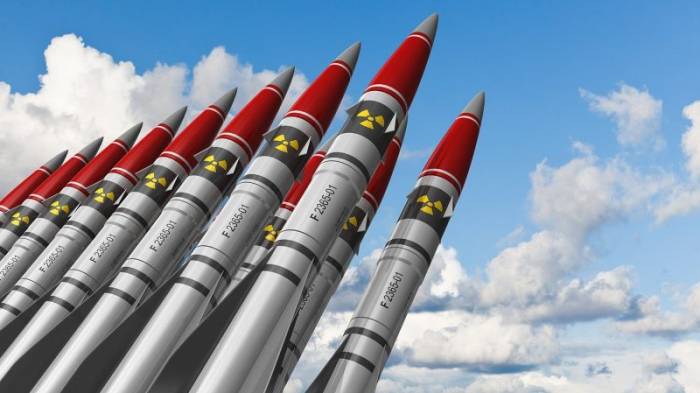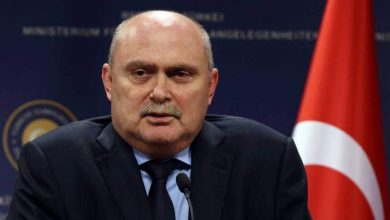Tokyo’s call to Washington: Japan prepares for nuclear deterrence vs. China and Russia

With Shigeru Ishiba’s appointment as Prime Minister of Japan on October 1, 2024, the country embarks on a new era of foreign policy and military strategy. In his article for the Hudson Institute in Washington, Ishiba called for a discussion on the possibility of deploying U.S. nuclear weapons in the Asia-Pacific region (APR) and creating an Asian equivalent of NATO. This initiative not only shifts the direction of Japanese policy but also raises questions about the nation’s remilitarization and its consequences for the entire region.
For decades, Japan adhered to a pacifist policy enshrined in its Constitution. However, changes in the global political landscape and rising tensions in the region—especially related to China’s growing military power and North Korea’s nuclear ambitions—are forcing Japan to reconsider its defense doctrines.
Shigeru Ishiba, known for advocating the strengthening of Japan’s defense capabilities, has highlighted the lack of a NATO-equivalent system in the Asia-Pacific region—a collective defense mechanism capable of effectively deterring threats from countries like China, Russia, and North Korea. In his statement, Ishiba openly proposed creating such an alliance in Asia, which could coordinate efforts with the U.S. and potentially use nuclear weapons as a deterrent.
This move marks a dramatic departure from Japan’s post-war “nuclear-free” stance. Despite maintaining close defense ties with the U.S., Tokyo has consistently avoided formal commitments to nuclear arms. However, China’s increased military activity , particularly around the disputed Senkaku Islands, and North Korea’s nuclear ambitions have shifted Japan’s priorities.
China views the strengthening of U.S.-Japanese defense relations as a direct threat to its regional dominance. In recent years, China has pursued an increasingly aggressive policy in the South China Sea and around the Senkaku Islands, which Japan claims as its own. This growing tension amplifies Japan’s need for security guarantees and a means of deterring potential threats.
Meanwhile, China and Russia continue to bolster their military cooperation through joint exercises and a strengthening strategic alliance. In this context, Ishiba’s proposal for an Asian NATO-like alliance becomes particularly relevant. If China and Russia continue to act in close coordination, regional countries will be forced to seek ways to protect their interests. Ishiba’s proposal is seen as a response to these shifting international dynamics.

Nevertheless, such an idea inevitably creates tension among neighboring countries. Russia has already expressed concern about the strengthening defense ties between the U.S., Japan, and South Korea. Russian Foreign Minister Sergei Lavrov has explicitly stated that these countries are forming a new trilateral bloc, and Japan is heading toward remilitarization. These statements highlight Moscow’s growing wariness of Tokyo’s evolving defense policy.
In addition to nuclear deterrence, Japan is actively enhancing its defense capabilities and strengthening cooperation with U.S. armed forces. The joint military exercises “Keen Sword-25,” scheduled for the fall of 2024, are among the largest maneuvers involving 45,000 troops. These exercises include the use of civilian infrastructure such as airports and ports, demonstrating Japan’s readiness to integrate military operations into its civilian sphere.
These measures signal that Tokyo is gradually moving away from its long-held pacifist stance, which limited the role of its armed forces to self-defense. Although Japan still adheres to a Constitution that prohibits war as a means of resolving international disputes, its current actions reflect growing confidence in the need for active deterrence.
Many analysts already refer to Japan as the “Eastern NATO branch,” underscoring its increasing role in the U.S.’s global strategy in the Asia-Pacific region. This cooperation—especially in the context of exercises—plays a key role in maintaining the American presence and influence in the region, counterbalancing China’s growing power.
Ishiba’s proposal to deploy nuclear weapons in the Asia-Pacific region will inevitably lead to new tensions. China and Russia will likely view this move as a threat to their security and respond accordingly, whether through diplomatic or military means. North Korea, too, is unlikely to ignore any mention of expanded U.S. nuclear deterrence in the region.
Meanwhile, domestic debates in Japan over remilitarization and nuclear weapons may intensify. Despite support from some political elites and foreign policy strategists, many Japanese citizens remain committed to pacifism and oppose any form of increased military presence.
At the same time, Tokyo’s new strategy could lay the foundation for a long-term stable balance of power in the region, preventing direct conflicts and strengthening Japan’s position as a key U.S. ally in the fight for security and influence in the Asia-Pacific region.
Japan’s new Prime Minister, Shigeru Ishiba, stands on the brink of decisions that could dramatically reshape both the country’s domestic and foreign policies. Nuclear weapons, an Asian NATO, and remilitarization may be seen as inevitable steps in the face of growing threats. However, the long-term consequences of these decisions for stability in the Asia-Pacific region and Japanese society remain open questions.
(If you possess specialized knowledge and wish to contribute, please reach out to us at opinions@news.az).





